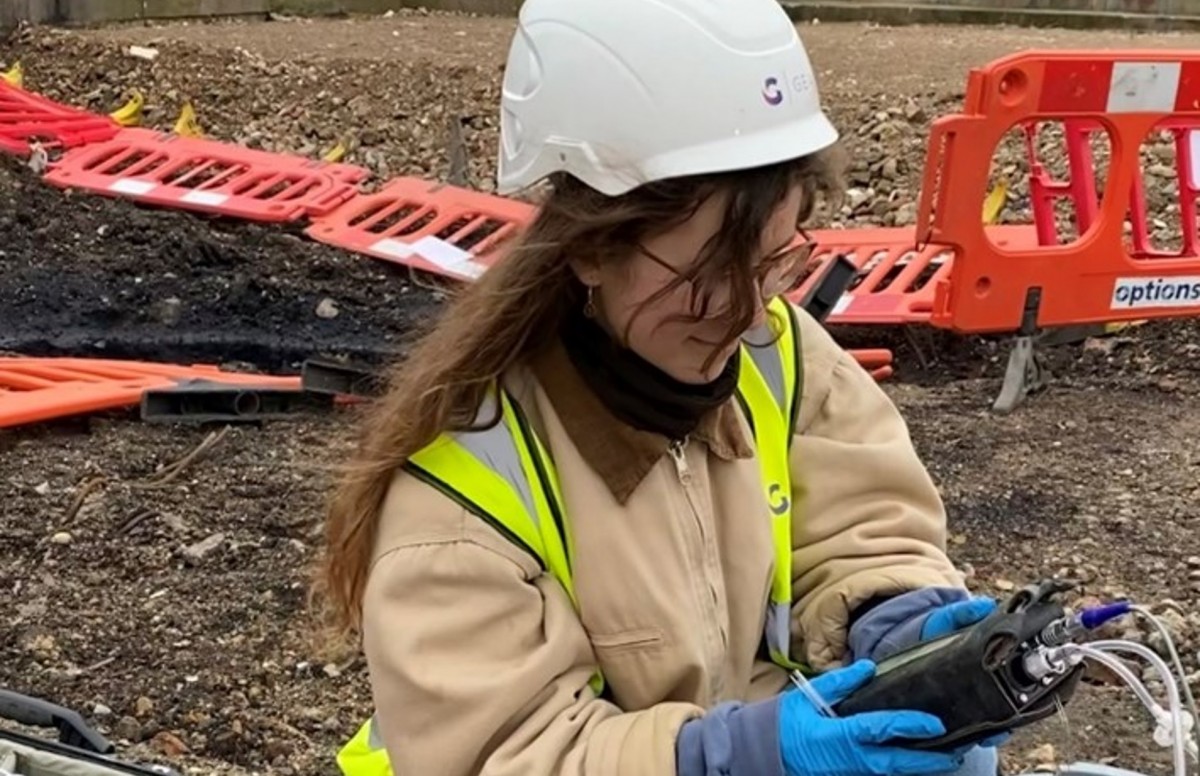Geotheta Things To Know Before You Get This
Geotheta Things To Know Before You Get This
Blog Article
Geotheta - An Overview
Table of ContentsGeotheta Can Be Fun For EveryoneSome Known Factual Statements About Geotheta The 20-Second Trick For Geotheta8 Simple Techniques For GeothetaThe Ultimate Guide To Geotheta

They carry out site investigations, gather examples, execute research laboratory examinations, and assess data to examine the viability of the ground for construction tasks - Geo Tech Engineering. Based on their findings, geotechnical engineers offer referrals for foundation style, slope security, retaining structures, and reduction of geotechnical dangers. They work together with various other specialists, such as architects, structural designers, and building and construction groups, to make sure that geotechnical considerations are incorporated right into the overall task layout and execution
By evaluating the behavior and residential properties of soil and rock, they can determine prospective geotechnical hazards such as landslides, dirt settlement, or slope instability. Their knowledge assists protect against failings or crashes that can endanger lives and residential property. Below are some thorough tasks and obligations of a geotechnical engineer: Website Examination: Geotechnical engineers conduct website examinations to gather information on subsurface problems.
They interpret the data to understand the residential or commercial properties and behavior of the dirt and rock, including their strength, leaks in the structure, compaction features, and groundwater conditions. Geotechnical Analysis and Layout: Geotechnical engineers analyze the information accumulated during website examinations to examine the security and suitability of the website for building and construction tasks. They do geotechnical estimations and modeling to examine aspects such as birthing ability, settlement, incline stability, side planet pressures, and groundwater circulation.
Some Ideas on Geotheta You Need To Know
Foundation Layout: Geotechnical engineers play a crucial role in designing structures that can safely sustain the designated framework. They evaluate the dirt problems and load demands to determine the proper structure type, such as superficial structures (e.g., grounds), deep structures (e.g (https://www.huntingnet.com/forum/members/geotheta.html)., piles), or specialized techniques like dirt enhancement. They think about factors such as settlement restrictions, bearing capacity, and soil-structure communication to create optimal foundation layouts
They assess building strategies, monitor site tasks, and conduct area evaluations to validate that the style suggestions are followed. If unpredicted geotechnical issues develop, they evaluate the scenario and provide referrals for remediation or adjustments to the style. Risk Assessment and Mitigation: Geotechnical designers assess geotechnical dangers and threats connected with the job website, such as landslides, liquefaction, or soil erosion.

Collaboration and Communication: Geotechnical designers work carefully with other experts associated with a project, such as designers, architectural engineers, and building and construction teams. Effective interaction and partnership are essential to integrate geotechnical factors to consider right into the overall job style and construction procedure. Geotechnical engineers offer technological expertise, solution queries, and make certain that geotechnical requirements are satisfied.
More About Geotheta
Below are some kinds of geotechnical designers: Foundation Designer: Structure engineers specialize in designing and assessing structures for frameworks. They assess the soil conditions, load requirements, and site qualities to figure out one of the most ideal structure kind and layout, such as shallow foundations, deep structures, or specialized methods like stack structures.
They examine the elements influencing slope stability, such as soil residential or commercial properties, groundwater conditions, and incline geometry, and develop methods to stop incline failings and alleviate dangers. Earthquake Engineer: Quake designers specialize in evaluating and making frameworks to withstand seismic pressures. They evaluate the seismic hazard of a website, review dirt liquefaction capacity, and develop seismic layout requirements to guarantee the safety and strength of structures throughout quakes.
They do field testing, accumulate samples, and assess the gathered data to identify the dirt properties, geologic developments, and groundwater conditions at a site. Geotechnical Instrumentation Designer: Geotechnical instrumentation engineers concentrate on tracking and determining the habits of dirt, rock, and structures. They set up and preserve instrumentation systems that keep an eye on elements such as soil negotiation, groundwater levels, incline activities, and structural variations to evaluate efficiency and provide very early cautions of potential concerns.
The Single Strategy To Use For Geotheta
They perform tests such as triaxial examinations, debt consolidation examinations, direct shear tests, and leaks in the structure tests to gather information for geotechnical evaluation and layout. Geosynthetics Engineer: Geosynthetics engineers concentrate on the layout and application of geosynthetic materials, such as geotextiles, geogrids, and geomembranes. They utilize these products to boost soil stability, strengthen inclines, give drainage services, and control erosion.
They often tend to be investigative individuals, which means they're intellectual, introspective, and analytical. They wonder, methodical, logical, analytical, and logical. Some of them are also social, indicating they're kind, generous, cooperative, patient, caring, valuable, compassionate, sensible, and friendly. Does this audio like you? Take our cost-free job examination to learn if geotechnical designer is among your top job suits.
In the office atmosphere, geotechnical designers make use of specialized software program devices to do computations, produce designs, and assess data. They prepare records, testimonial job requirements, communicate with customers and team members, and coordinate task tasks. The office setup supplies a conducive setting for research, analysis, and collaboration with various other professionals involved in the task.
The Basic Principles Of Geotheta
They frequently check out task sites to carry out website investigations, analyze geotechnical conditions, and gather information for analysis. These brows through involve taking a trip to various locations, sometimes in remote or tough terrains. Geotechnical engineers might execute soil tasting, conduct examinations, and monitor building and construction tasks to guarantee that the geotechnical facets of the job are being executed correctly.
Geotechnical designers additionally operate in specialized geotechnical laboratories. In these centers, they perform experiments, carry out tests on soil and rock samples, and examine the design residential or Geotechnical Engineers commercial properties of the materials. Geotechnical lab designers function extensively in these atmospheres, managing screening tools, running tools, and recording data. They work together with various other lab team to ensure accurate and trustworthy screening results.
Report this page